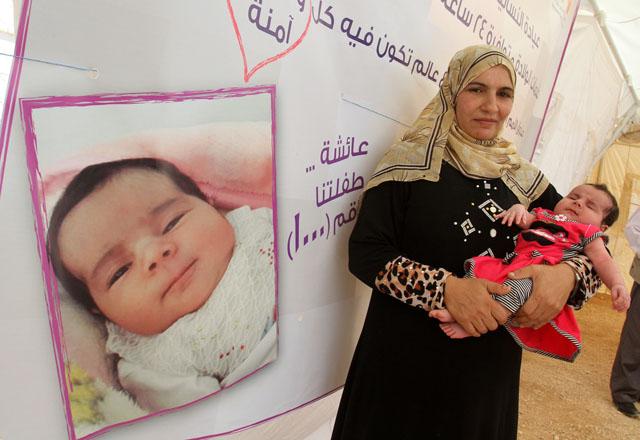You are here
Women unaware of GBV health services — study
By Khetam Malkawi - Jul 20,2016 - Last updated at Jul 20,2016
AMMAN — Only 6 per cent of visitors to healthcare centres know that gender-based violence (GBV) screening and assistance are available, a new study has found.
The study, conducted by the UN Population Fund (UNFPA), evaluates the services available at 17 Ministry of Health comprehensive health centres and the national women’s healthcare centre in Tafileh.
Some 75 per cent of supervisors and 40 per cent of service providers in these centres have received training in GBV, according to the study, which was released on Tuesday.
The study also found that 86 per cent of patients selected a healthcare centre based on its proximity to them, while the second most common reason for choosing a centre was the advice of a relative.
According to the study, conducted with the participation of the National Women’s Healthcare Centre, 90 per cent of patients said they had a medical file at the centre they frequent.
None of the couples who received treatment at healthcare centres before their marriages were asked if they had genetic diseases or if they smoked, and no brides-to-be were offered blood pressure tests or clinical examinations, the study found.
The survey aimed to provide a more specific understanding of the health services on offer at clinics, and to identify gaps in maternal and child healthcare and family planning services, said UNFPA Representative Daniel Baker at an event to launch the report.
Baker added that the study aimed to inform decision making to mobilise resources and improve outcomes. The findings of the study offer an “excellent opportunity” for Jordan and the humanitarian community working in the emergency response to identify gaps, define their priorities, structure their interventions and mobilise resources, he said.
“The implementation of the recommendations of the assessment” will enable UNFPA and other important partners, including UN agencies and NGOs, to build the capacity and resilience of the national health system to better cope with added strains while maintaining the high quality of services provided to local communities, said the UN official.
For his part, Bashir Qasir, director of the ministry’s primary healthcare directorate, said there were 462 primary healthcare centres in the Kingdom, adding that the results of the study would contribute to improving services provided.
Related Articles
AMMAN — The United Nations Population Fund (UNFPA) in Jordan has received support from the French Ministry for Europe
HH Princess Sara Zeid on Wednesday stressed the need to extend support to the UNFPA and its partners to continue delivering services for Syrian women refugees.
The UNFPA on Monday celebrated the birth of baby number 1,000 at its clinic in the Zaatari Refugee Camp, which currently houses over 85,000 Syrians.



















